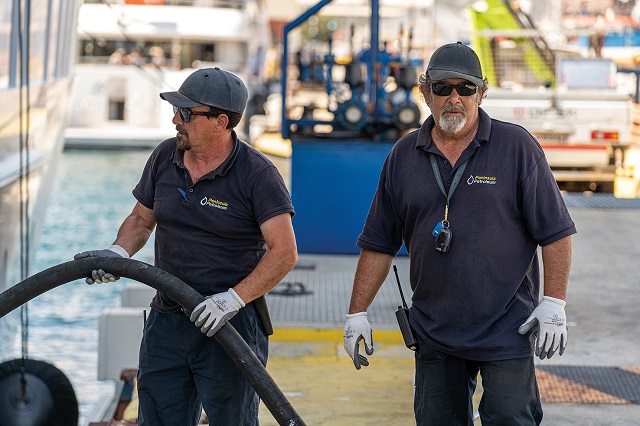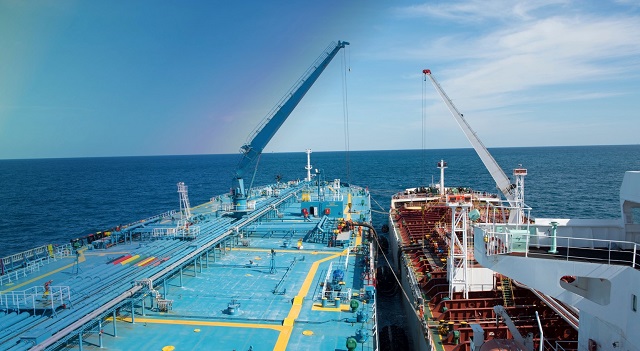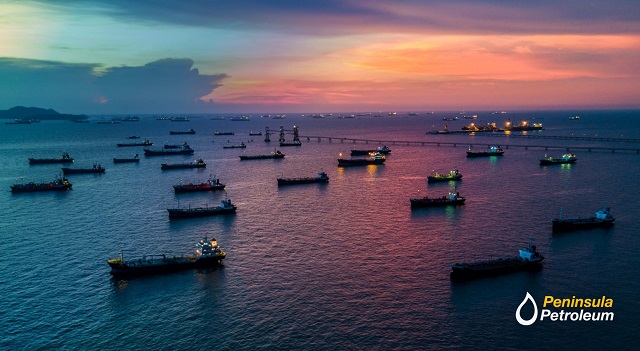Peninsula Petroleum Group is ready for IMO 2020
On January 1, 2020, the IMO’s 0.50 percent global sulfur cap becomes effective, marking a major change to the marine fuel environment.
Over the past decade, Peninsula Petroleum Group (PPG), a leading global integrated marine fuel supplier, has further invested in and expanded its global physical supply and reselling capability. This is in line with the group’s long-term business strategy built on conservative risk management, which puts PPG in a predominant position of 2020 readiness ahead of time.
Since July, PPG began successfully supplying VLSFO in Europe, the Americas and Asia to its customer base. CEO John A. Bassadone said, “To date we have delivered 300,000 tonnes of VLSFO in our physical supply ports of Gibraltar, Algeciras, Barcelona, ARA, Canary Islands, Malta, Panama, U.S. Gulf Coast and Los Angeles. By December 31, more than 600,000 tonnes will have been delivered to our clients.”

PPG’s focus on the importance of supply chain control and logistics has seen the group increase its strategic global storage positions during 2019, which today includes over 400,000 metric tons of terminal capacity in Europe and a further 370,000 metric tons across the Americas. The group also recently acquired its first Panamax vessel providing increased operational flexibility for product procurement, floating storage and cargo transhipments.
PPG have purchased and added an additional seven product tankers to modernize and upgrade their global fleet of over 30 owned and chartered-in vessels. One of them, an 8,000dwt tanker, is the first of a new building program designed to offer more segregation, enhanced quality control and optionality.
On the product side, the business has secured the right flow of compliant fuels matching the demand of its blue-chip customer base enabling PPG to be fully prepared well in advance of January 1. PPG’s direct relationships with oil majors, large IOCs, refiners and large global commodity traders on the supply side have allowed the implementation of a diverse 2020 procurement offering which has provided clarity to customers on product availability in each of its physical locations.
Alex Lyra, Global Head of Supply & Trading, stated, “We have secured the full mix of products and availability in our physical ports from reliable partners in advance of 2020 and beyond. Our enhanced supply chain offers customers comprehensive solutions across multiple locations.”
To ensure quality control and allay customer concerns, PPG’s operations, logistics and supply chain control allow the purchase of products and components for the production and delivery of compliant fuels well within ISO 8217:2017 specifications, backed up by in-house technical expertise.
Victor Morales, Global Head of Sales and Marketing, commented, “By engaging our customers early on in the 2020 planning phase to better understand their fuel strategies, demands and concerns, we’ve expanded key customer relationships across our entire blue-chip portfolio. This has enabled us to develop a comprehensive supply offering which is relevant and competitive.”
Bassadone concludes, “We have been committed to growing our business in a conservative manner and we have invested heavily over the past few years in our people, especially in building out comprehensive middle and back office teams to bolster our controls and processes. Our approach has been endorsed by our stakeholders who’ve shown their confidence in our business.
“In that regard we have aligned ourselves with the right strategic partners who share our vision. We are optimistic about the challenges and opportunities 2020 brings and our focus of delivering global solutions that add value to our clients remains unchanged.”

About Peninsula Petroleum
Peninsula Petroleum commenced trading in 1996 and is a leading physical supplier and reseller of marine fuels operating from 18 global offices. With physical supply operations in 15 worldwide ports and global reselling coverage, Peninsula is a diversified group, covering the supply chain from cargo sourcing through to ownership and operation of a modern product tanker fleet.
• Physical supply of bunkers (ship-to-ship and ex-pipe)
• Reselling of bunkers (global traders)
• Hedging solutions
• Lubricant sales
• Superyacht supply expertise
• Cargo blending and storage
• Product tanker owners, charterers and operators
For further information, view our website or contact our media relations.

The opinions expressed herein are the author's and not necessarily those of The Maritime Executive.

